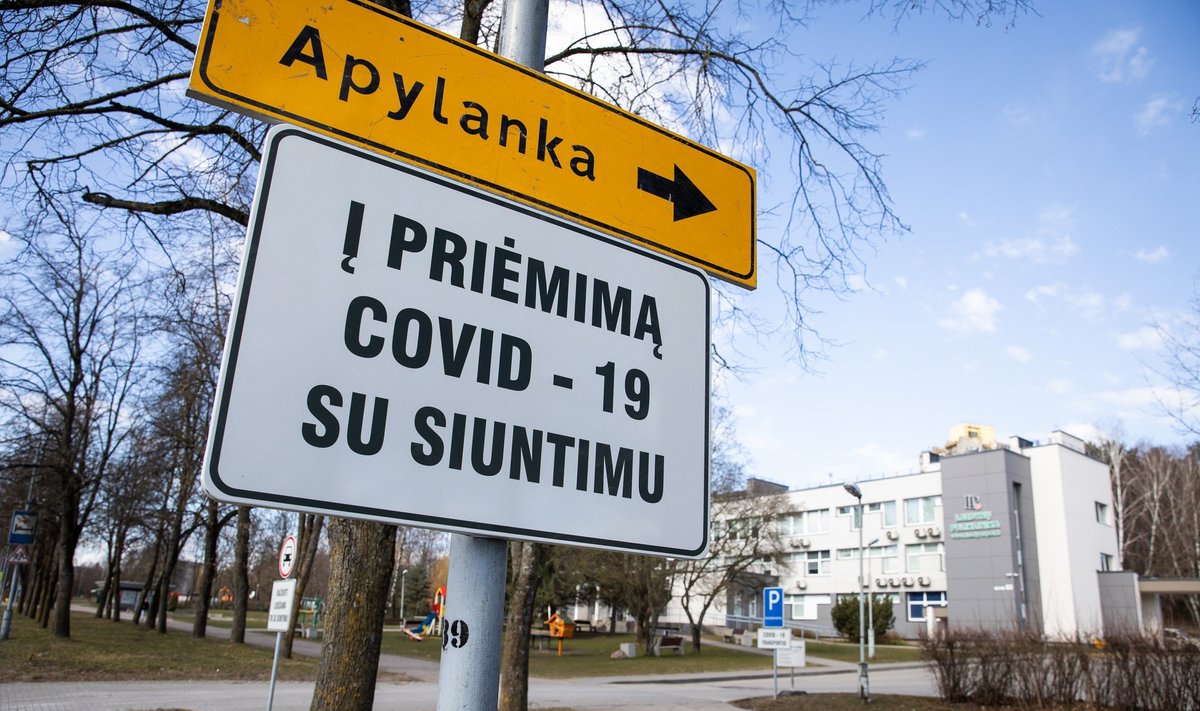According to Ministry of Health guidelines, these clinics will be open to people aged 18-60 years old in Vilnius who receive an electronic referral from their GPs and are experiencing symptoms of upper respiratory tract infection (chills, cough, sore throat, difficulty breathing), and elevated temperatures (37.8⁰C and more). When a patient goes to one of the fever clinics, they will have their temperature taken, perform a general blood and C-reactive protein analysis, and receive a chest X-ray. A nasopharyngeal swab will also be taken to test for a coronavirus infection. Patients will receive further treatment if necessary.
“In just three business days we've set up an algorithm of operations for two fever clinics, provided the necessary facilities, recruited staff and we will be able to accept patients on Tuesday,” says Povilas Poderskis, Director of Administration at the Municipality of Vilnius. “It is important to emphasise that patients in these clinics will not be treated in a stationary way, because these will be outpatient clinics. We will also make sure that people who do not have their own vehicle are provided with a municipal transportation service, since people with fever-like symptoms are prohibited from taking taxis or public transport.”
The fever clinics will only accept patients who have a fever and have not taken antipyretic medications prior to entering the clinic. This is crucial to avoid overloading doctors and the potential misuse of the clinics. In cases where a patient is determined to not have a fever, they will be kindly asked to go home. During the quarantine, residents are expected to be conscious and only come to the clinic when necessary.
The Ministry of Health has defined the nature of the specialist teams that will staff the fever clinics. They will include all medical staff whose workloads are currently reduced due to quarantined services. That is, the fever clinics will include physiotherapists, dental assistants, and other staff who will become clinic coordinators or assistants. The fever clinics will work in shifts – one 3-person team is scheduled to work no longer than 4 hours.
According to the procedure set out by the Ministry of Health, once these fever clinics are operating in Vilnius, everyone with a fever who may be infected with the coronavirus will have to directly contact their GP instead of calling the dedicated 1808 coronavirus hotline. It is the GP who will send a referral to go to a fever clinic.
What is the procedure for patient inspection?
Coronavirus tests in the fever clinics will be similar to those performed at mobile checkpoints. After remotely receiving a referral from their GP to go to a clinic, patients will be contacted by a fever clinic coordinator who will tell them where and when they may arrive.
Once patients arrive at a fever clinic, they are forbidden to leave their car or open car windows without permission. They are also recommended to wear a medical mask. Each patient must have a proof of identity and an A4 sheet of paper with their mobile number on it. The patient will need to place the sheet with their phone number in a visible place inside the vehicle indicated by the coordinator. Visitor data will be verified through a phone call.
Patients will be allowed to exit their vehicles (and leave them in the parking lot) and enter the fever clinic only with the permission of a coordinator. After the examinations, depending on the patient's medical condition, they may be released to a private isolation facility or be referred to a coronavirus infection treatment centre.
